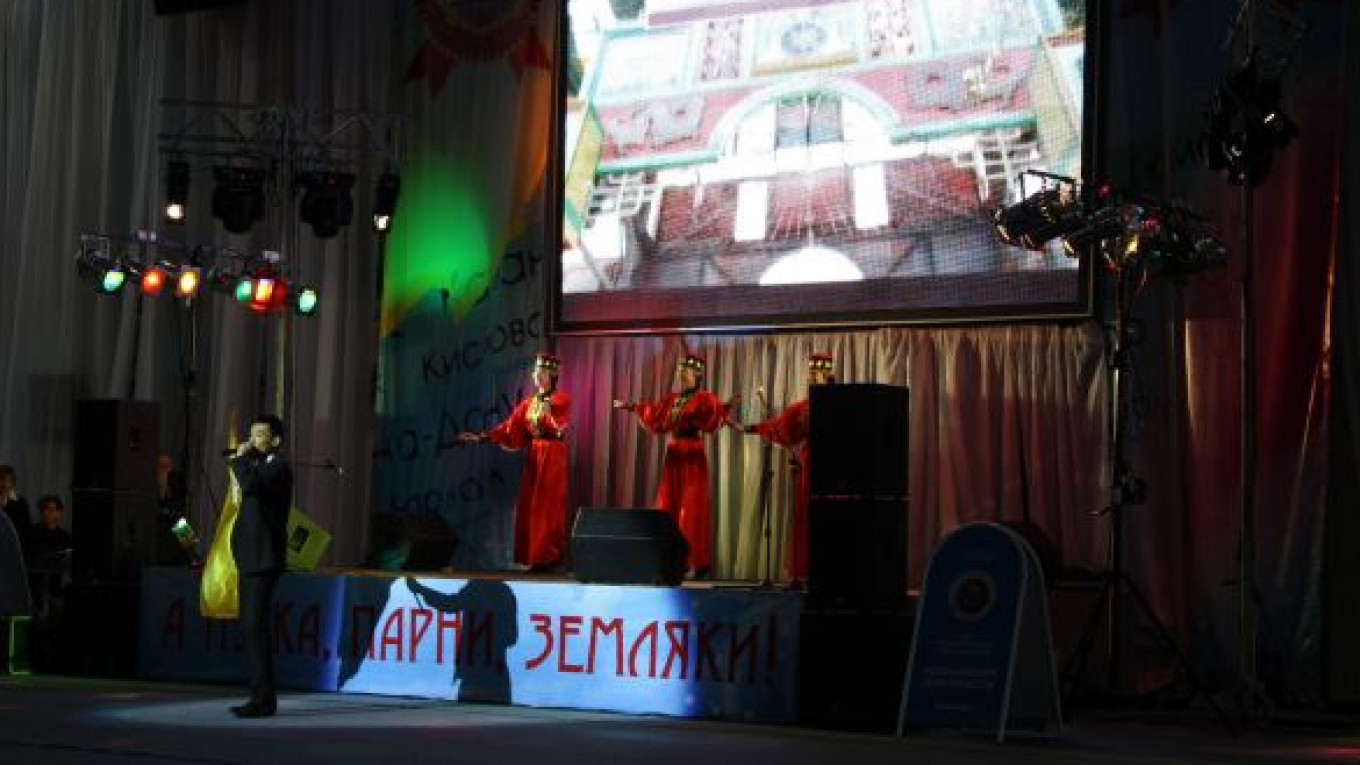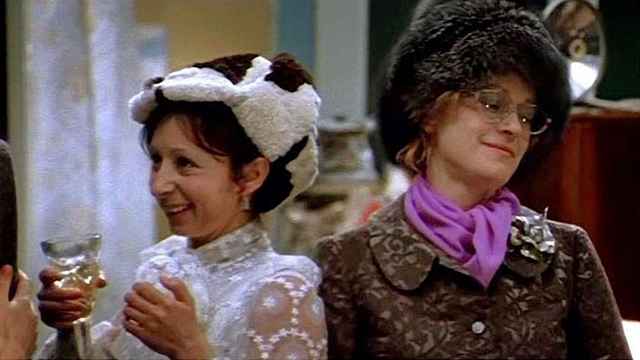Since the country’s first perestroika-era pageant, Russia has welcomed the beauty contest as a stage to showcase the glamour of its women. But in Moscow’s most recent pageant, crew cuts and tuxedos replaced curlers and swimsuits, as 10 finalists fought to be named most eligible bachelor from Russia’s regions.
“The idea of the contest is to show the beauty, courage and talent of these guys who came to Moscow and conquered it,” said Maria Yermakova, spokeswoman for the city’s southeastern district.
Moscow’s Association of Fellow-Countrymen selected 10 out of 200 hopefuls to compete in the event Friday. Participants ranged from ages 18 to 27 and hailed from far-flung Russian regions including the Far East, West Siberia and the republic of Kalmykia.
In pursuit of the title, hopefuls were tested on Moscow trivia, sports, home maintenance and dance. All the contestants performed against a backdrop of slideshows featuring their respective cities. Dmitry Luchinin of Kursk barreled through a rap about his hometown set to The Verve’s “Bittersweet Symphony,” while Alexander Mytnitsky chose to re-enact the World War II defense of Bryansk on stage.
The contest had all the highs and lows of any post-Soviet contest organized by a local authority: a jury made up of minor celebrities (and the head of the district); a grand municipal location — the Ivan Varyagin Wrestling Palace; a dodgy speaker system; and spectators, mainly family and friends, with the patience to sit through an event nearly four hours long.
Bright lights, banners and a spasmodically erupting smoke machine obscured the massive posters of men pinning each other down in the wrestling palace as the contestants were put through their paces.
“It’s not a beauty pageant, that’s female. We present this as a contest of beauty, mind, courage and talent,” Yermakova said, not long before the contestants put on inflatable boots to make free throws at a basketball hoop.
Beauty contests have long been a favorite trick for the predominantly male Russian bureaucracy. There have been contests for female atomic power workers, soldiers, police and many more, but it is a rare occasion that the spotlight turns to the male.
The idea for the contest came after the district first held a beauty contest for women from Russia’s regions. The beauty contest participants suggested the idea, Yermakova said.
Backing the contest was a vague idea of harmony and love, a nice idea in a city where Muscovites’ and non-Muscovites’ dislike of one another is often of epic proportion.
Moscow is known for its racial problems — notably the race riots last December on Manezh Square — but there is also nonracial tension in a city that has seen millions of fellow Russians arrive in the last 20 years, between those with longer roots in the city and the new arrivals.
This was talked of in woolly terms with much declaration of “we love Moscow” and “we love Russia,” like an echo of “friendship of the peoples” rhetoric from Soviet days.
The grand prize went to Vladimir Pak, a Russian of Korean descent, who sang with backup from dancers in traditional Korean dress.
Pak, who took home an iPad for his prize, adopted the gravity befitting his new role as victor, reminding the audience of the evening’s underlying message.
“It’s really, really great when all of Russia joins together as one,” he said.
Unfortunately, by the end of the three-and-a-half-hour event, only a handful of countrymen remained to take heed of his message.
A Message from The Moscow Times:
Dear readers,
We are facing unprecedented challenges. Russia's Prosecutor General's Office has designated The Moscow Times as an "undesirable" organization, criminalizing our work and putting our staff at risk of prosecution. This follows our earlier unjust labeling as a "foreign agent."
These actions are direct attempts to silence independent journalism in Russia. The authorities claim our work "discredits the decisions of the Russian leadership." We see things differently: we strive to provide accurate, unbiased reporting on Russia.
We, the journalists of The Moscow Times, refuse to be silenced. But to continue our work, we need your help.
Your support, no matter how small, makes a world of difference. If you can, please support us monthly starting from just $2. It's quick to set up, and every contribution makes a significant impact.
By supporting The Moscow Times, you're defending open, independent journalism in the face of repression. Thank you for standing with us.
Remind me later.






